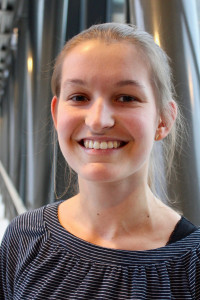PhD-student

End stage renal disease is an increasing problem with a substantial impact on the society, but treatment options are very limited. At the department of Nephrology we use human induced pluripotent stem cells (hiPSCs) and differentiate these cells to kidney organoids to investigate their potential in regenerative medicine. These kidney organoids contain almost all cell types that are present in the adult kidney and mature upon transplantation under the kidney capsule in mice. One of the major challenges for regenerative medicine using iPSCs is to overcome rejection of transplanted tissues by the immune system. In a collaborative project with the group of Dr Zaldumbide (Cell & Chemical Biology dept), my research focuses on the development of an iPSC line that is protected against immune rejection and can therefore be used as a universal donor cell line. To achieve this goal we investigate multiple immune evasion strategies and hope to develop a universal donor cell line that can be used for transplantation.
Curriculum Vitae:
During my bachelor Biomedical Sciences at Utrecht University (2012-2015) I became interested in stem cells and their capacity to regenerate different tissues. I therefore started the master Regenerative Medicine and Technology at Utrecht University. During my master (2015-2017) I performed my major internship at the Pediatric Gastroenterology department at the UMCU where I studied liver organoids as a model for genetic liver diseases. After this I joined the Pharmacology department of Utrecht University for a literature internship at on recent developments and future prospects in kidney bioprinting. For my last internship I went to the Karolinska Institute in Stockholm to study gene regulation and progenitor competence in neural stem cells at the Cell and Molecular Biology department. In 2018 I started my PhD-project at the LUMC in the group of Prof. Ton Rabelink (Nephrology) and Arnaud Zaldumbide, PhD (CCB), combining translational with basic research.



Looking for information on one of our topics, a new place to conduct your research or experienced research to join forces with? Feel free to contact us.!